About The Salvation Army Southern New England Providence Adult Rehabilitation Center
The Salvation Army Southern New England Providence Adult Rehabilitation Center in Providence, Rhode Island, offers a residential treatment program that serves adults who have a drug or alcohol use disorder. You’ll be supported through counseling, a comprehensive work therapy program and community care. They offer services free of charge.
When you first start treatment here, you’ll join a residential treatment program that will empower you to build the skills you need for success. Their work therapy program is at the heart of the care they offer here. You’ll work at one of their affiliate thrift shops and facilities, helping to improve your community. Through this work therapy program, you’ll gain a sense of accomplishment as you establish the skills you need for reintegration back into society.
While you move through the work therapy program, you’ll also be supported by counseling services. Through one on one counseling with experienced professionals, you’ll gain the skills you need to navigate your recovery. You’ll learn different strategies and techniques that you can apply to help you manage your emotions and triggers that have contributed to your substance use struggles.
You’ll also get to connect with others through their 12 Step style recovery programs. These programs include Alcoholics Anonymous and Narcotics Anonymous. You’ll have the opportunity to build meaningful relationships with peers and mentors. These relationships can help guide you as you move through difficult parts of your recovery.
You’ll also be connected to other community services that can help. As a national leader in philanthropic efforts, they also offer access to support if you experience homelessness or food insecurity after your treatment.
Addiction Treatment Programs
Alcohol Rehab
An alcohol rehab in Rhode Island helps people gain the skills they need to overcome addiction and maintain long-term sobriety. Common services include counseling and classes on coping skills, emotional management, communication, and other key life skills. Alcohol rehab programs can provide inpatient or outpatient treatment.
Dual Diagnosis
A dual diagnosis is when you have a mental health diagnosis along with a substance use disorder. Getting integrated rehab in Rhode Island is essential to long-term recovery. Dual diagnosis programs may offer detox, inpatient treatment, and/or outpatient care. The key is that they provide integrated treatment for both mental health symptoms and substance use.
Opioid Addiction
If you choose rehab in Rhode Island, you’ll receive professional treatment that will help you break free of opioid addiction. Drug rehab may include detox, inpatient treatment, and/or outpatient care. You’ll learn the roots of addiction and learn how to build a substance-free life.
Adult Program
Adulting can be hard. When you choose an adult program in Rhode Island, you get the support you need to overcome addiction and build a successful life. Some of the common services will include counseling and classes on coping skills, emotional management, communication, and other key life skills. Adult programs can provide inpatient or outpatient treatment.
Men's Rehab
Men need unique support, and a men’s rehab in Rhode Island can help them manage gender-specific concerns while overcoming addiction. Some of the common services they include are counseling and classes on coping skills, emotional management, communication, and other key life skills. Men’s programs can provide inpatient or outpatient treatment.
Women's Rehab
When people join a women’s rehab in Rhode Island, they are able to tackle gender-specific issues while receiving treatment. Some common services include counseling and classes on coping skills, emotional management, communication, parenting, and other key life skills. Women’s programs can provide inpatient or outpatient treatment.
Young Adult Rehab
Choosing a young adult rehab in Rhode Island can be a great way to learn new life skills while also addressing substance use. Some of the common services will include counseling and classes on coping skills, emotional management, communication, and other key life skills. Young adult programs can provide inpatient or outpatient treatment.
Senior Rehab
Insurance Coverage
Self-pay options
When you use self-pay for rehab in Rhode Island, you can choose any center you prefer. Self-pay involves using a medical loan from a bank or credit union, writing a check, or sending money electronically to the center. The fee structure may vary depending on the level of care.
Medicaid
When looking for ways to pay for rehab in Rhode Island, consider Medicaid if you are struggling to afford treatment. You’ll want to contact treatment centers to find out which ones accept Medicaid and make sure you get the right level of care, such as detox, inpatient, or outpatient treatment.
Financing available
There are many ways to pay for rehab in Rhode Island. One option is finding out if financing options are available. Financing allows you to spread out the cost of treatment over time or may help you get a lower fee. Options include payment plans, scholarships, grants, and medical loans.
Medicare
There are many ways to pay for rehab in Rhode Island. One option is Medicare. Coverage may vary depending on whether you have Original Medicare or Medicare Advantage. You may be responsible for certain costs, such as copayments and deductibles.
Free
Finding affordable addiction treatment in Rhode Island can be done in multiple ways, including looking for free rehabs. Free rehabs in your area may be run by the state or county, so consider starting there in your search. They can offer all levels of care, including detox, inpatient treatment, and outpatient care.
Levels of Care
- 1
Outpatient Rehab
Outpatient treatment in Rhode Island allows clients to live at home or in a sober living facility while attending treatment. Outpatient treatment is commonly a follow-up to residential treatment and may be used to help with skill-building, education, and to practice your new habits in daily life.
- 2
Aftercare Support
Aftercare in Rhode Island helps clients maintain long-term recovery by providing essential support after treatment ends. It’s common for a treatment program to offer aftercare support, which may include employment training, help with housing, alumni support groups, and more.
Therapies
Cognitive Behavior Therapy
In Rhode Island, cognitive behavioral therapy (CBT) is widely used in addiction treatment. CBT is a common part of both inpatient and outpatient substance use treatment and may be used to help with skill-building, overcoming problematic behavior, and managing substance use triggers.
Dialectical Behavior Therapy
In Rhode Island, dialectical behavioral therapy (DBT) is widely used in addiction treatment. DBT is a common part of both inpatient and outpatient substance use treatment and may be used to help with skill-building, overcoming problematic behavior, and managing substance use triggers.
Family Therapy
Family therapy in Rhode Island helps clients overcome substance use by addressing the family conflicts and dysfunction that may contribute to addiction. Family therapy sessions generally last 60 to 90 minutes and may include discussing marital issues, codependency, grief, domestic violence, trauma, and other topics that impact families. The goal is to create healthier relationships that can support recovery.
Group Therapy
Group therapy in Rhode Island helps clients overcome substance use by providing accountability and support. Group therapy is a common part of both inpatient and outpatient substance use treatment, and may be used to help with skill-building, processing, and presenting educational information.
Individual Therapy
Attending individual therapy in Rhode Island is a way to work through your past and develop healthy coping skills, helping you establish long-term recovery. Individual focuses on improving both behavioral and emotional health. You may explore thought processes, develop motivation to change, and/or explore past events that may have played a part in your substance use.
Rational Behavioral Therapy
Rational behavior therapy in Rhode Island teaches you to recognize triggering events, reframe irrational beliefs, and choose healthier responses. During treatment, you’ll examine activating events, identify irrational beliefs that affect your response, and learn the skills necessary to consciously choose a different reaction to each situation.
Trauma Therapy
Many people struggling with addiction in Rhode Island are dealing with unprocessed trauma. Trauma-informed therapy can help you address what happened and develop healthier coping strategies. When you receive trauma-informed therapy, it may include peer support, grief counseling, medications to support mental health, and developing healthier responses to emotional triggers.
Location
Contact The Salvation Army Southern New England Providence Adult Rehabilitation Center
Top Drug Rehab Centers in Rhode Island
-
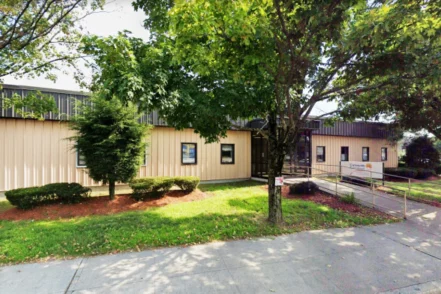 Rhode Island
Rhode IslandCommunity Care Alliance John Cummings Way
55 John A Cummings Way Woonsocket, Rhode Island 02895
-
 Rhode Island
Rhode IslandThe Providence Center Women’s Road to Recovery
15 Baker Pines Road Wyoming, Rhode Island 02898
-
 Rhode Island
Rhode IslandAddiction Recovery Institute South
205 Hallene Road, Suite 102 Warwick, Rhode Island 02886
-
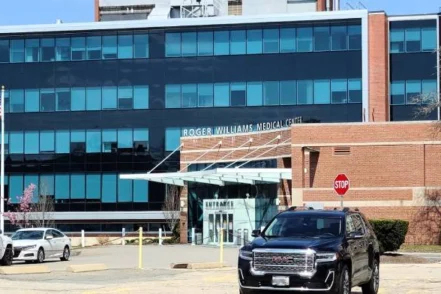 Rhode Island
Rhode IslandRoger Williams Medical Center Addiction Medicine Treatment
825 Chalkstone Avenue Johnston, Rhode Island 02908
-
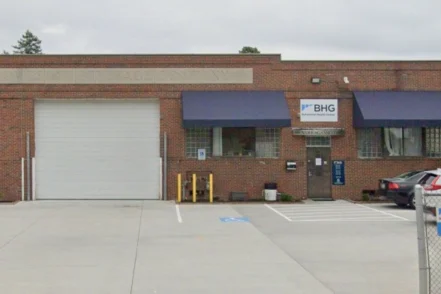 Rhode Island
Rhode IslandJourney to Hope Health and Healing Providence
160 Narragansett Avenue Providence, Rhode Island 02907
-
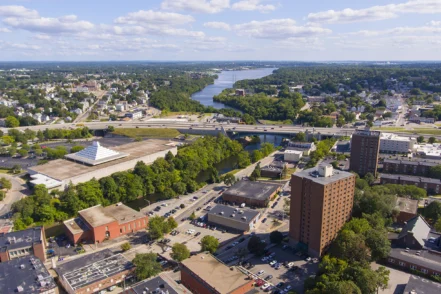 Rhode Island
Rhode IslandGateway Healthcare Benefit Street Apartments
353 Benefit Street, Suite 351 Pawtucket, Rhode Island 02861
-
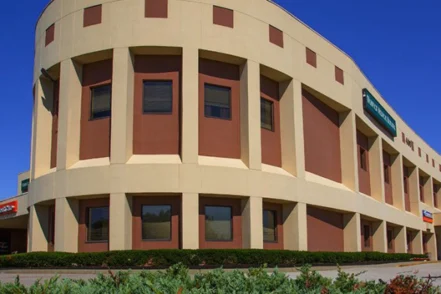 Rhode Island
Rhode IslandAdCare Warwick
400 Bald Hill Road Warwick, Rhode Island 02886
-
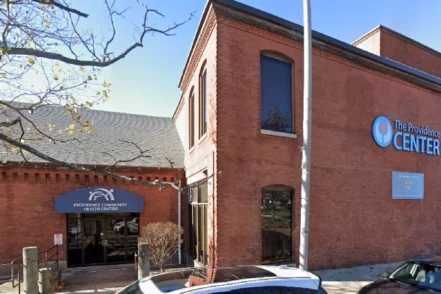 Rhode Island
Rhode IslandThe Providence Center North Main Street
530 North Main Street Providence, Rhode Island 02904
-
 Rhode Island
Rhode IslandPhoenix House Exeter
251 Main Street Exeter, Rhode Island 02822
-
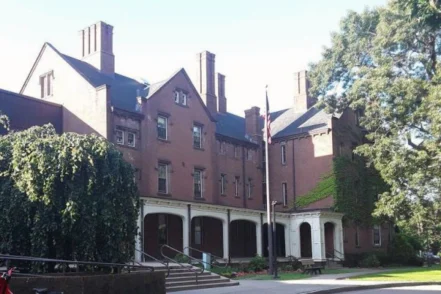 Rhode Island
Rhode IslandButler Hospital
345 Blackstone Boulevard Providence, Rhode Island 02906